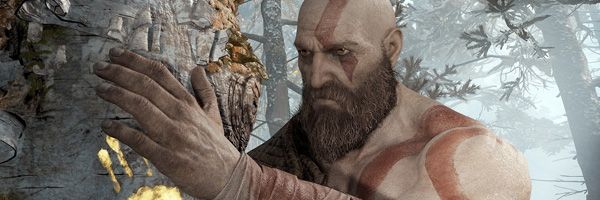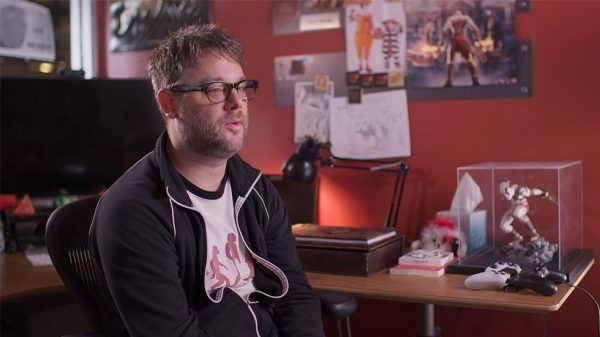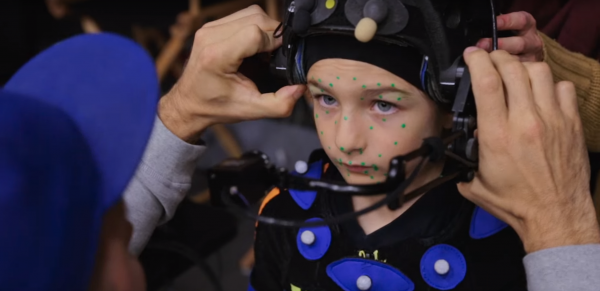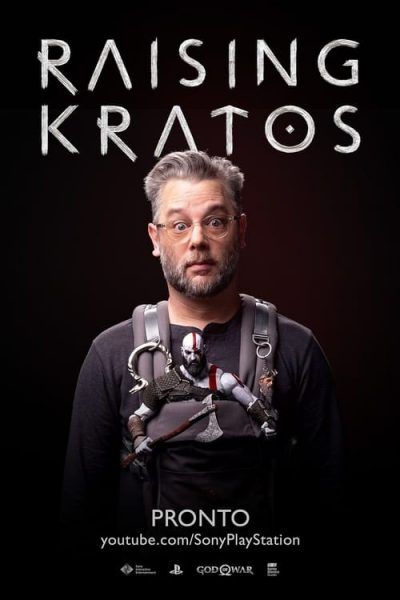I’m fascinating by video game development. It’s a unique blend of art and technology that doesn’t behave at all like film or television development. I adore Jason Schreier’s 2017 book Blood, Sweat, and Pixels, which chronicles the development of eleven games and the barriers that developers have to face both on the independent and the AAA level. However, while there’s no shortage of behind-the-scenes documentaries for feature films, the world of video games has been fairly closed off. That’s why I jumped at the chance to watch Brandon Akiaten’s Raising Kratos, a two-hour documentary that follows the making of 2018’s God of War. While it’s tough to distill a five-year development process into a two-hour movie, Akiaten does an admirable job at showing the various facets of the game’s development and the hardship involved. Although it’s clear that there are places where the documentary could go even deeper, Raising Kratos will create a newfound appreciation for one of the greatest video games of this generation.
The documentary jumps around a bit in terms of perspective, but tries to keep the focus primarily on director Cory Barlog, who directed God of War II and returned to Santa Monica Studio, the company behind the franchise, to helm a reboot after fans and critics felt the series was starting to grow stale. The stakes for the new God of War are high as a new IP from Santa Monica Studios falls apart and so everything is resting on God of War to appease the corporate overlords at Sony Interactive Entertainment. What’s even more risky is that Barlog plans to take God of War in a new direction, away from the anti-hero of Greek mythology and into a father-son story set in Norse mythology. As the game moves through development, we see the various parts that go into production including voice acting, score, research, and more.
Raising Kratos appears to have been made with the casual viewer in mind. It doesn’t dare try to get hung up on issues of coding or elements that may not be glamorous. It’s really easy to understand Christopher Judge, who voices Kratos, talking about getting cast and his personal relationship to the character. It would probably be more difficult to explain to an audience what an “engine” is for a video game and what’s required in building a game for a next generation console like the PlayStation 4. This keeps Raising Kratos not basic, but broad, intended for a wide audience, but not at the level of something like Indie Game that’s concerned with the intricacies of game development that may be too esoteric for some viewers.
Thankfully, Akiaten has a great “in” to his story because Barlog has such a clear vision for his game and the freedom and support to make it. I doubt we’ll ever see a video game documentary that shows conflicts from corporate bosses and game developers, so the next best thing we can do at the AAA level is show Barlog, a charming, self-deprecating figure, pursue this dream while recognizing the immense pressure to make God of War work. He’s taking on just not the normal risks of game development (iteration, technical issues, etc.), but also telling a personal story about the difficulty of being a parent. There’s no knowing if fans would even go for such an approach, but Barlog never waivers on making that the core of his game.
Akiaten does his best to make sure that he hears from a wide variety of figures involved with the making of the game, and it helps make God of War seem like a collaborative effort with Barlog steering the ship, but unable to make it go without everyone from studio head Shannon Studstill on down. Perhaps the game’s saving grace in its arduous production is that Barlog mapped out such a clear destination from early on, and everything else was about trying to reach that destination. So, for example, if Kratos’ son Atreus, doesn’t feel like a full part of the action and just a background AI, the game doesn’t work. But you can’t constantly be babysitting him, or else the game gets annoying. Watching the developers strike that balance over the course of the film is fascinating and provides a key insight into the problem-solving of game development.
While Raising Kratos doesn’t serve as the best vision possible of the hardships of video game development (I’m pretty sure not a single person mentions the word “crunch” even though it’s clearly depicted in the game’s closing weeks as they try to make their release date), it does serve as great document on the making of God of War in particular. Numerous times during the film I wanted to hit pause and go fire up my old save, but then decided against it because I knew the Valkyrie Queen would just kick my ass again. But I was constantly reminded of why the game worked so well on every level, and it was rewarding to see the work that went into the game. If you’re a fan of God of War, you won’t be disappointed by Raising Kratos.
Rating: B




